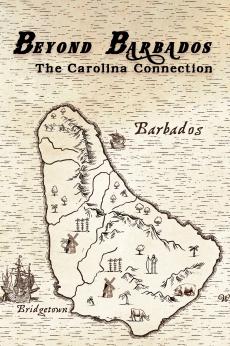Round Two: What's My Name? (1964-1970)
Cassius Clay publicly joins the Nation of Islam and takes the name Muhammad Ali. When he refuses induction into the Army, he is stripped of his title and forced into exile. After three years he returns to the ring, but he’s lost a step.
Previews + Extras

Cassius Clay Changes His Name to Muhammad Ali
S1 E2 - 3m 50s
After the heavyweight champion grows close with Malcolm X, he announces to reporters that he's renounced the name Clay, citing it as a slave name, and has instead taken on the name Cassius X. Concerned that Cassius would stray from the Nation of Islam, Elijah Muhammad offers him a new name to secure his allegiance: Muhammad Ali.

Muhammad Ali Fights Cleveland 'Big Cat' Williams
S1 E2 - 2m 12s
Muhammad Ali's promoters secured the Astrodome in Houston, Texas, where he would fight army veteran Cleveland "Big Cat" Williams, who was widely recognized for being a big hitter. Here, the young boxer introduced his new move, the Ali shuffle, into the ring. The referee ended the fight a minute into round three and Ali would claim his victory.

Muhammad Ali Marries Belinda Boyd in Chicago
S1 E2 - 2m 50s
In 1966, Muhammad Ali met 16-year-old Belinda Boyd at a Nation of Islam bakery, and the two married on August 18, 1967. Living together in Chicago, the couple initially struggled to make ends meet when Ali wasn't fighting, and Belinda would sew clothes, use some of her college funds, and sometimes even received money in secrecy from Elijah Muhammad to support them.

Outlash Follows Muhammad Ali's Criticism of the Vietnam War
S1 E2 - 6m 15s
After publicly condemning the Vietnam War, Muhammad Ali and his team faced difficulties finding a new location for his fight against Ernie Terrell. Attorney General William Clark declared the fight illegal and they were turned away from venues across the U.S. When the fight moved to Canada, Terrell pulled out, unhappy with changes to the contract, and Ali instead fought Canada's George Chuvalo.

Muhammad Ali Is Found Guilty of Refusing the Draft
S1 E2 - 2m 39s
An all-white Houston jury found Muhammad Ali guilty of refusing the draft. He was sentenced to five years in prison and fined $10,000. His lawyers filed an appeal. Though he remained free during this time, he was stripped of his title and was not allowed to box. Still, he expressed that going into service would be against his faith and the teachings of Islam.

Muhammad Ali Refuses the Vietnam War Draft
S1 E2 - 6m 15s
Prior to his match against Foley, Ali received news he had been drafted to fight in Vietnam. When Ali arrived to be inducted in the United States Armed Forces, however, he refused, citing his religion forbade him from serving. The cost for his refusal would prove to be drastic: the stripping of his heavyweight title, a suspension from boxing, a $10,000 fine, and a five-year prison sentence.

Muhammad Ali Embarks on a Tour Across Africa
S1 E2 - 3m 2s
As Muhammad Ali embarked on his tour of African countries, he was showered with praise everywhere he traveled. At the conclusion of Ali's tour, Malcolm X, a former friend and mentor to Ali, called on Ali to remember his responsibility to the people of Africa and beyond.

Muhammad Ali's Focus on Racial Justice
S1 E2 - 2m 3s
At a press conference, Muhammad Ali announced his strong consideration for an early retirement, describing how he was tired of boxing and wanted to focus on fighting for racial justice. In America at the time, progress appeared imminent with the signing of the Voting Rights Act of 1965. The road to racial justice, however, was far from over.

'I'm Free to be Who I Want to Be'
S1 E2 - 5m 34s
In 1964, at the young age of 22, Cassius Clay claimed the heavyweight title after defeating Sonny Liston — further cementing Clay's dominant presence in the boxing world. However, despite Clay's unequivocal prowess as a boxer, he drew criticism for his outspoken socio-political and religious beliefs, with many condemning him as "un-American."
Similar Shows


The War
History

Slavery by Another Name
History




Going to War
History


The American Revolution
History

Historian's Take
History
PBS PASSPORT
Stream tens of thousands of hours of your PBS and local favorites with WETA+ and PBS Passport whenever and wherever you want. Catch up on a single episode or binge-watch full seasons before they air on TV.